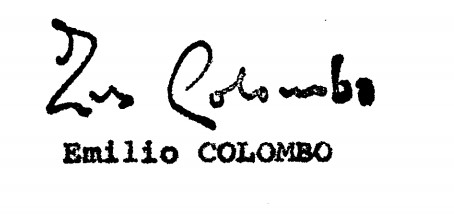Biography
Emilio Colombo was born on the 11th of April 1920 in Potenza, Italy. At the age of 26 he was elected a Member of the Constituent Assembly, the body responsible for drafting Italy's new post-war constitution. He was appointed afterwards as secretary to the Agriculture Committee. In 1948 he was elected a Member of the Italian Parliament; he would hold this seat until 2003, having been appointed a Senator for life by the President of Italy. Colombo was a minister in several Italian centre and centre-left governments between 1955 and 1976 and held the position of the President of the Italian Government's Council of Ministers from 1970 to 1972. In 1985 he became President of the European Union of Christian Democrats. On 12 July 1990, he was appointed President of the Italian Atlantic Committee. From March 1993 to June 1995, he was President of Christian Democrats International.
Political posts held
In 1976 Colombo became a Member of the European Parliament, where he sat until 1992 in the Christian-Democratic Group (which later became the Group of the European People's Party). In March 1977 he was elected President of the European Parliament and led it towards its first elections by direct universal suffrage. In May 1979 he received the Charlemagne Prize in Aachen, the third Italian politician to receive this honour after Alcide de Gasperi and Antonio Segni. From February to May 1992 he was Chairman of the Temporary Committee on the Delors II package (From the Single Act to Maastricht and beyond: the means to match our ambitions), which had a remit concerning the achievement of the Maastricht Treaty objectives.
What's in the Archives
The officials of President Veil's Office merged the archives of the Offices of President Colombo (1977-1979), as well as those of President Cornelis Berkhouwer (1973-1975) and President Georges Spénale (1975-1977), with the archives of the first President of the elected Parliament. Given the way the European Parliament archives are indexed, however, it is possible to identify all documents sent or received by President Colombo during his term of office. We can therefore reconstruct his activities comprehensively and precisely.
President Colombo's documents are included in the following four series of the fonds of the Cabinet of Simone Veil:
Public Figure
PE1 P1 100/PERS
See the fonds of Simone Veil.
Presidency of the Parliament
PE1 P1 200/PRES
See the fonds of Simone Veil.
Secretariat of the Parliament
PE1 P1 300/SECR
See the fonds of Simone Veil.
Annex
See the fonds of Simone Veil.
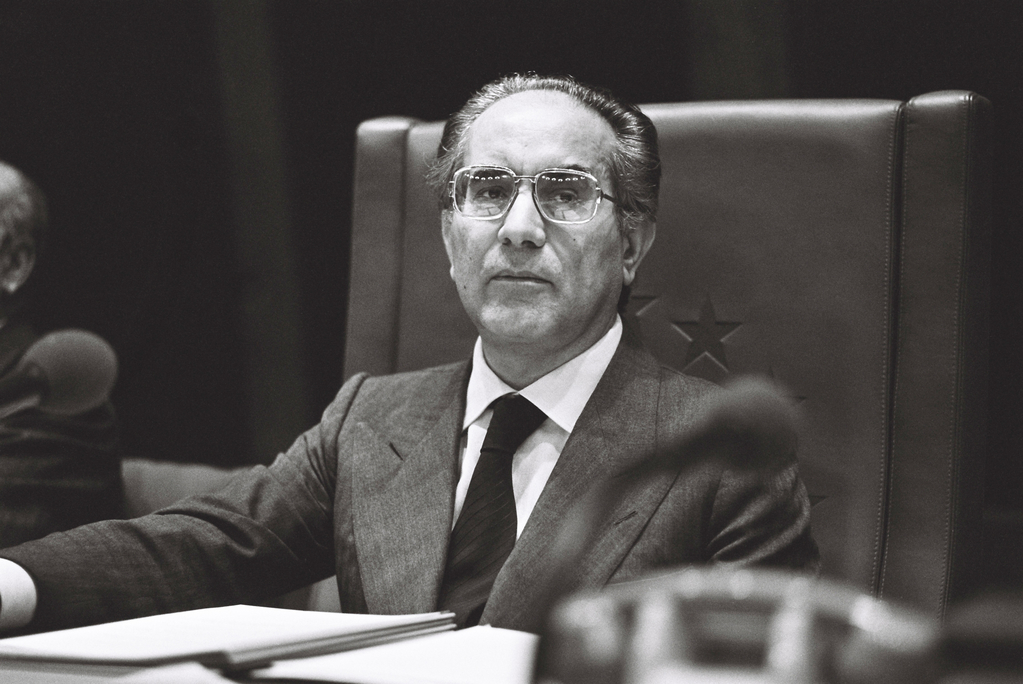 European Parliament President Emilio Colombo during a session in Strasbourg in November 1977 © European Communities 1977 – European Parliament
"Europe is the natural context in which solutions for social and economic progress will find their true meaning and true value."
European Parliament President Emilio Colombo during a session in Strasbourg in November 1977 © European Communities 1977 – European Parliament
"Europe is the natural context in which solutions for social and economic progress will find their true meaning and true value."
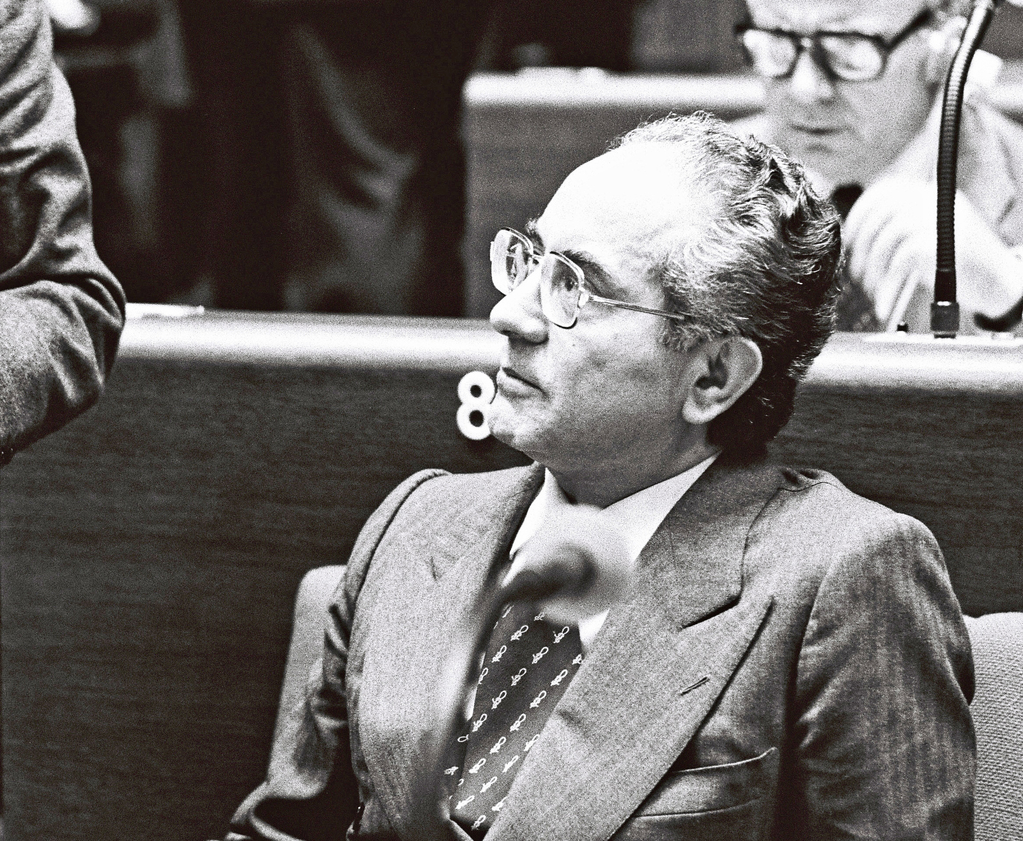 Emilio Colombo during the European Parliament Presidential election in 1977 (Strasbourg) © European Communities 1977 – European Parliament
Emilio Colombo during the European Parliament Presidential election in 1977 (Strasbourg) © European Communities 1977 – European Parliament
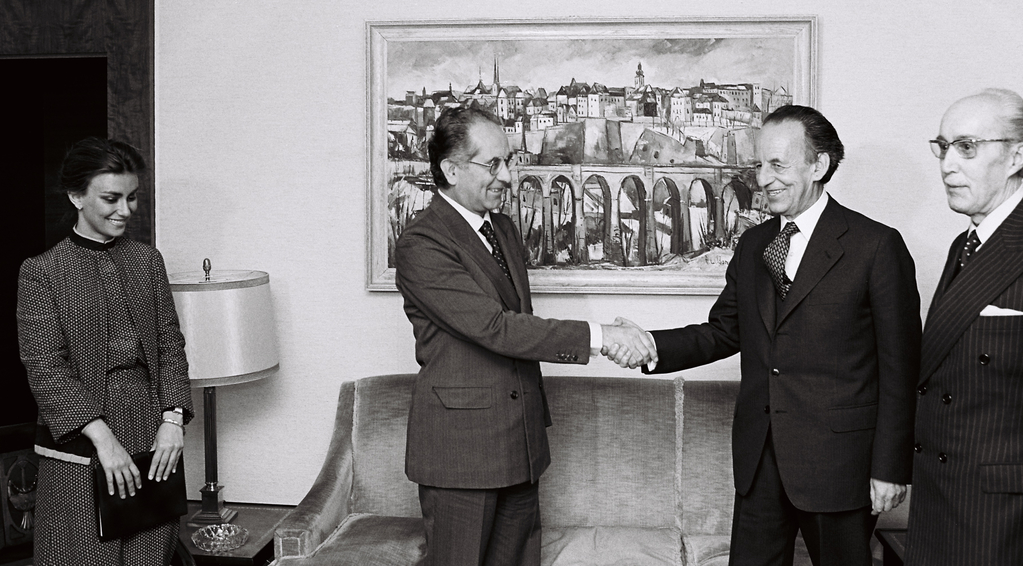 EP President Emilio Colombo shaking hands with the Spanish President of the Consejo del Reino, Antonio Hernández Gil (1978) © European Communities 1978 – European Parliament
EP President Emilio Colombo shaking hands with the Spanish President of the Consejo del Reino, Antonio Hernández Gil (1978) © European Communities 1978 – European Parliament
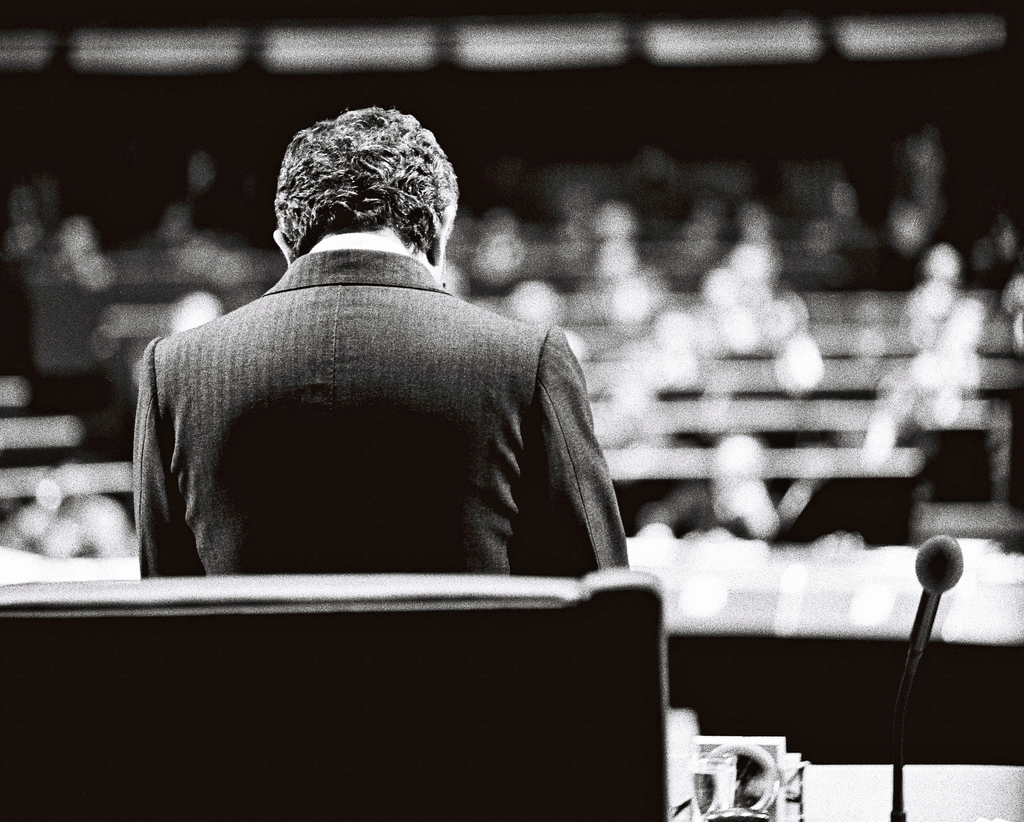 Emilio Colombo presiding a session © European Communities 1977 – European Parliament
Emilio Colombo presiding a session © European Communities 1977 – European Parliament
